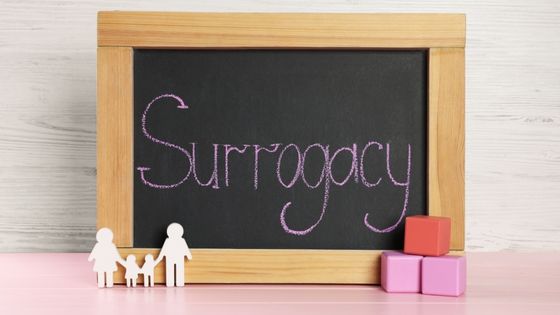For Buddhist parents facing the struggles of infertility, surrogacy(the practice of carrying and delivering a child for another couple) is a ray of hope if they don’t consider adoption as the best way to fulfill their desire for parenthood.


For them, however, the question arises as to whether or not surrogacy is moral in the Buddhist tradition. This article examines the ethical implications of surrogacy in the context of Buddhist philosophy. This is a matter to which the advisors and counselors of a surrogacy agency should consider carefully before they engage into a contractual relationship with Buddhist surrogate candidates and intended parents.
Three Principles in Buddhist Ethics
Buddhism as a religious philosophy emphasizes the importance of understanding the nature of reality and achieving enlightenment through meditation and ethical behavior. The ethical principles of Buddhism include the Four Noble Truths, the Noble Eightfold Path, and the Five Precepts.
These principles emphasize compassion, non-harm, and non-attachment. Let’s tackle the last one.
The Principle of Non-Attachment
The concept of non-attachment is central in Buddhism. Non-attachment means not being attached to material possessions, relationships, or even one’s own body. The goal of non-attachment is to avoid suffering and achieve liberation from the cycle of rebirth. Is surrogacy compatible with the principle of non-attachment?
It depends on which side the principle is considered.
On the one hand, surrogacy can be seen as a way of helping others without becoming attached to the child. The surrogate mother is not raising the child as her own, and therefore does not form the same emotional attachment that a biological mother might. In this sense, surrogacy can be seen as a way of practicing non-attachment.
On the other side, the argument can be made that surrogacy is not compatible with the principle. Surrogacy involves an attachment to the outcome of the pregnancy, even if the surrogate mother is not raising the child. The intended parents will form a strong emotional bond with the child. This attachment will lead to all sorts of sufferings.
The Principle of Non-Harm
The principle of non-harm is also relevant to the question of the morality of surrogacy in the Buddhist tradition. Non-harm, or “ahimsa” is a central ethical principle emphasizing the importance of avoiding harm to all living beings. Can surrogacy be seen as a form of harm to the surrogate mother or to the child?
Surrogacy can involve physical and emotional risks for the surrogate mother. Pregnancy and childbirth are not banal medical phenomena. Both can be difficult, even dangerous. Surrogacy can involve multiple rounds of fertility treatments and medical procedures which could put the surrogate mother’s health and well-being at risk…All things going against the principle of non-harm.
Surrogacy can also involve harm to the child, particularly if the intended parents are using reproductive technologies that may carry health risks. In addition, later in life, the child may experience confusion or difficulty in understanding his/her identity and relationship to the biological mother and the surrogate parents. This can lead to psychological harm and suffering, which also go against the principle of non-harm.
The Principle of Interdependence
In addition to the principles of non-attachment and non-harm, the concept of interdependence is also relevant to the question of the morality of surrogacy in light of the Buddhist tradition.
Interdependence is the idea that all beings are interconnected and that our actions have an impact on others. Is surrogacy in line with the principle of interdependence?
On the one hand, surrogacy can be seen as a way of helping others and promoting interdependence. Intended parents are unable to have children on their own: the surrogate mother provides them with the help they need to create a family.
Surrogacy also enables the continuation of family lines and the passing on of genetic material. In this sense, surrogacy can be seen as a way of promoting interdependence by fostering a sense of community and connection.
The arguments to the contrary can’t be ignored, however.
Surrogacy can create a sense of separation and disconnection between the child and his/her biological mother and surrogate parents. This can create confusion and a sense of dislocation, which would be harmful to the child’s psychological well-being.
Another concern is that surrogacy can perpetuate inequalities and injustices, particularly in the context of commercial surrogacy. In extreme cases, surrogacy may involve the exploitation of women in developing countries who may not have access to the same legal protections or medical resources as women in wealthier countries.
This can perpetuate systems of inequality and injustice.. against the principle of interdependence.
Practical and legal issues would also be considered under the light of Buddhist philosophy. For example, there may be difficulties in determining legal parenthood and custody arrangements, particularly if the surrogate mother changes her mind about giving up the child.
In Western countries, where surrogacy benefits from a well-developed legal framework, the risks are mitigated. But the former does not prevent the psychological trauma that the surrogate mother may experience when parting with the child she just gave birth to. What happens then to the principles of compassion and non-harm?
Personal Attitude in Buddhism
Whether or not surrogacy can be considered moral in the Buddhist tradition is a complex and multifaceted issue. While surrogacy can be seen as a way of helping others and promoting interdependence, it also raises issues under the key principles of non-attachment, non-harm, and interdependence.
Ultimately, the moral acceptability of surrogacy for the Buddhist parents depends on their degree of separation and acceptance of the sufferings that could be born from this practice. Their personal attitude toward the potential adverse events determines to a great degree whether or not they ought to start the process. As to the surrogate mother, she will have to weigh carefully the potential consequences of her commitment if she decides to take part of this act.
As to the surrogacy agency’s advisors and counselors, it behooves them to know their potential clients and their surrogate candidates well enough to ask the right questions and have the proper discussions before deciding to help both parties pursue their intent.
















